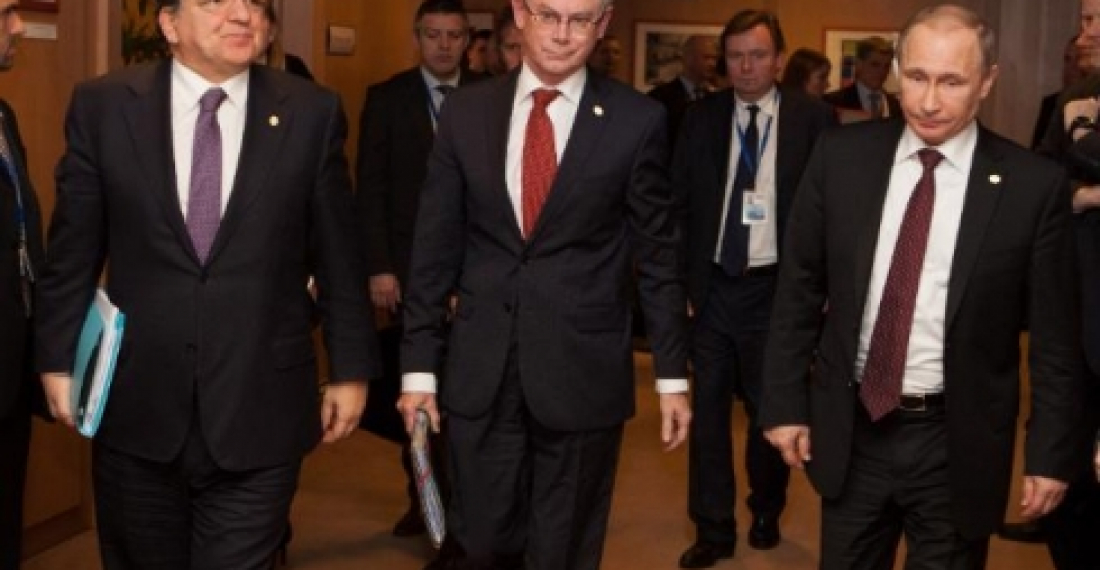At the end of a short summit between the Russian President, Vladimir Putin and the Presidents of the European Council and the European Commission which was held in Brussels today the two sides have agreed to start preparing a new agreement that will form the basis of the co-operation between them.
European Commission President, Jose Manuel Barroso said after the end of the negotiations that the meeting "took place in a spirit of frankness and openness", words usually used to indicate that there was tough talking on both sides. Barroso added,
"Our relationship and our common interests are too important to not address our differences. We need each other to ensure stability and prosperity throughout our shared continent and to produce solutions to the many challenges we face together.
To do this, we need mutual understanding and strategic trust."
Speaking about the Eastern Partnership, which has been a cause of disagreement between Russia and the EU, Barroso said,
"The Partnership is about extending and anchoring stability, rule-of-law, investment opportunities and growth beyond the European Union borders.
The Partnership is not against someone, it is for something - it is about making the countries in our neighbourhood more prosperous and giving their citizens better living conditions. This is something that can only benefit our other partners, and certainly will not harm Russia.
That's why today, also, we have agreed that we should pursue bilateral consultations at expert level on the Eastern Partnership Association Agreements and their possible economic consequences for both sides."
Barroso criticised "the perception that one region's gain is another region's pain" and said that the European Union was "against the mentality of block against block. We believe the European Union and Russia have all to gain from a cooperative attitude."
The summit was overshadowed by events in Ukraine where a political crisis has gripped the country ever since the government of President Yanukovich announced that it was not going to sign an Association Agreement with the European Union that it had successfully negotiated over a number of years. During a session of the Ukrainian Parliament this morning it was announced that the Prime Minister Mykola Azarov had resigned opening the way for the formation of a new government. The Parliament also repealled a number of laws that it enacted a few days ago which would have seriously restricted freedom of speech and assembly. The opposition continues to demand early Presidential elections.
In Brussels President Putin said after his summit with the EU leaders that Russia will honour the agreements it signed a few weeks ago with Yanukovich, regardless of whoever is in government in Kiev.Putin said the Ukrainian people could manage without any foreign mediators. "In any case, Russia will never interfere in this," he said.
Putin said he could not imagine how European partners would react if a Russian foreign minister came to crisis-hit Greece or Cyprus and addressed a crowd of protesters there.
source:commonspace.eu
photo: Vladimir Putin, Herman van Rompuy and José Manuel Barroso (in the foreground, from right to left); Picture courtesy of the Audio Visual Services secttion of the European Commission.







